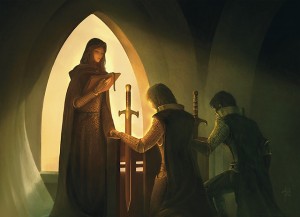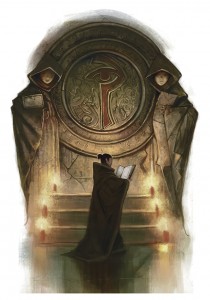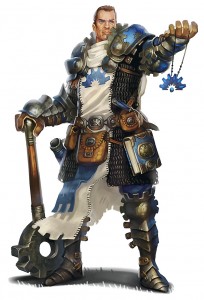 When creating a divine character it’s strongly encouraged that you choose a deity. Your PC should try to follow the teachings of this deity and wherever possible spread the god’s message throughout the camping world. But in most 4e D&D adventures I’ve run and played in the divine character is usually just the PC who heals wounds and deals radiant damage. No one seems to realize that there is a “Power” behind the power.
When creating a divine character it’s strongly encouraged that you choose a deity. Your PC should try to follow the teachings of this deity and wherever possible spread the god’s message throughout the camping world. But in most 4e D&D adventures I’ve run and played in the divine character is usually just the PC who heals wounds and deals radiant damage. No one seems to realize that there is a “Power” behind the power.
In previous editions of D&D a lot of emphasis was placed on which deity your divine character worshipped. It helped the player develop the role-playing and it often granted access to unique powers. But in 4e D&D there is no requirement to choose a deity and there is no down side for skipping this step. All you have to do pick a divine class and continue with character creation. Players involved in games that emphasize combat over role-playing likely have no idea which god their resident Cleric even worships, despite the fact that it’s this unknown deity that’s enabled the Cleric to heal their wounds. What’s even sadder is that a lot of the players running those divine characters don’t know either.
With the desire for all 4e characters to be balanced, the divine classes were dumbed down from what they once were. This may make things easier for new players but I think it really hurt divine classes. Playing a divine character should require work; at least more work than playing a character with another power source. You shouldn’t just be playing your character, you should be playing a set of ideals, rules and beliefs set out by the character’s deity. After all, you are the vassal for your god. You commune with deities. This certainly seems to me like it should be more complicated than playing the character that swings his sword at the monsters.

